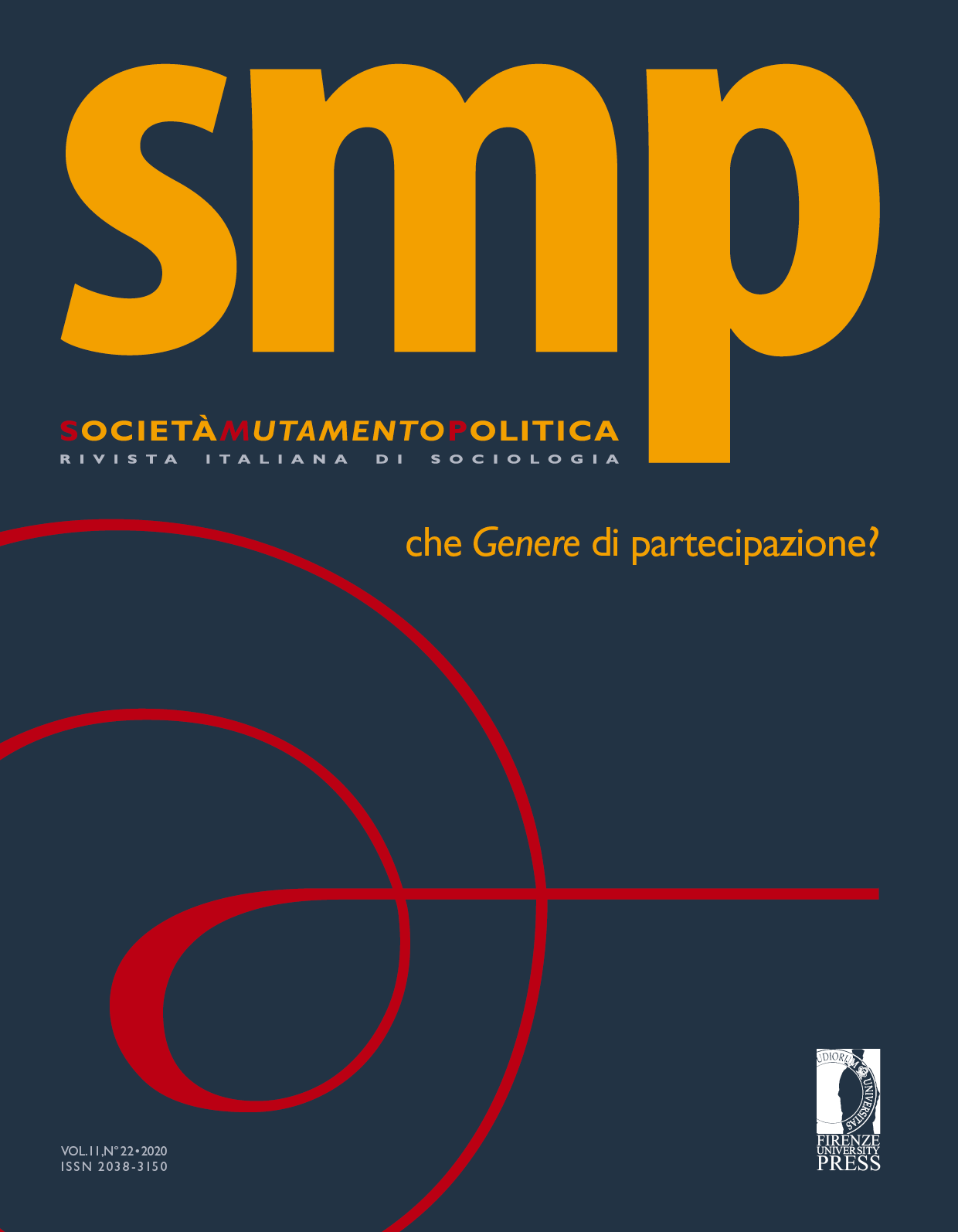Published 2021-03-01
Keywords
- Paid work,
- unpaid work,
- inequality,
- gender
How to Cite
Abstract
For some years now, scholars and statistical institutes have been paying increasing attention to the size and distribution of free labour, highlighting the relevant consequences on an economic, social and institutional level. The article, after a brief review of the studies related to the main lines of reflection on the phenomenon, conducts an analysis of the articulation and functions of the non-monetized economy and its transformations in post-Fordist societies. The processing of institutional data relating to the distribution of paid and unpaid working time, by gender and socio-biographical profile of the adult population, allows to verify the peculiarities of the Italian case, characterized by a particularly high amount of family work and a persistent gender disparity in its distribution. If the wealth produced by family work has positive effects on the resilience that our country shows in dealing with crises and structural problems, the oversizing of free labor and its management methods have many perverse effects on the economy, on the allocation of force work, on gender inequalities and on cohesion between genders and generations. Revolutionizing the conception that our societies have of the relationship between productive work and reproductive work is the most effective tool for working in depth on overcoming gender inequalities, as well as on an idea of a more free and supportive society.


